The world of work continues to develop. This can provide challenges for people who may lose their jobs as events unfold. Certainly this can be true during a recession. Different people may then act in different ways.
Person A may say:
“I am going to spend time polishing my CV and registering with recruitment agencies. Then I am going to reconnect with people I know. That is something I should have done before, but I am not good at promoting myself.”
Person B may say:
“I know my strengths and there are lots of jobs out there where I can help people.
“You can’t tell me that every project and every piece of work in the country is on time, on budget and on course to reach its goals.
“Somewhere there are bound to be unsatisfied customer needs. So I am going to get out there and help other people to succeed.”
Imagine that you face the prospect of an empty calendar. Let’s explore how you can find work in the future.
You can clarify your strengths
Several years ago I worked with a dynamic business that encouraged people to build on their strengths and take charge of shaping their future careers. This proved invaluable after the business was sold.
The buyers initially gave people in the company the following messages.
“We want to buy your profitability, market and know how. Most of all, we want to buy your culture. The people in your business have energy. We want them to spread this attitude through our company, which has become stale.”
Fine words. But within a year most people in the previously dynamic business became disillusioned. The large company ran things by committees and, despite saying it wanted to change, ground every new idea to dust.
Some time later I met with several of the former employees. They had all moved on to fulfilling work and had stood out from the crowd at interviews. One person explained this in the following way.
“The education we got regarding taking charge of our careers stood us in good stead.
“Several interviewers gave positive feedback regarding how we described the contribution we wanted to make to their company.
“Other candidates used the interviews to find out more about the jobs. But we had done our homework and were ready to hit the ground running.”
During their time at the dynamic business we had encouraged people to take the following steps. First, to clarify their strengths. Second, to clarify their potential future sponsors – customers or employers. Third, to clarify how they could use their strengths to help these people to achieve success.
People who took this approach were at an advantage when it came to interviews. They made the interviews about the potential employer – and how they could contribute – rather than about them.
If you wish, try tackling the exercise on these themes. Imagine that you want to find work or simply help other people. The exercise invites you to do the following things.
Describe your strengths – the specific activities in which you deliver As rather than Bs or Cs.
Describe the potential sponsors – the potential customers or employers – who you can help and the challenges they face.
Describe how you could use your strengths to help these people to achieve success.
You can go out and do work that
helps other people to succeed
One person described how they took this approach during the 2008 recession. They explained this in the following way.
“The recession taught me a lot. Like many people, my first reaction was to worry about maintaining an income. My second reaction was more interesting. I reframed the situation as an opportunity to help people.
“Over the years I have built a business as a mentor but that suddenly became a luxury purchase. Despite funds being cut, I offered my time to meet clients five days a week.
“Mentoring is often about helping people to make good decisions. So my clients and I explored the tough choices they needed to make regarding shaping their future businesses.
“On the practical side, the first aim was to cover my weekly costs, which proved possible. After a month or so several clients asked me to do various project work.
“This included helping teams to complete internal projects, improve customer service and develop new business.
“These projects were funded from the technology and marketing budgets. Previously my work had been paid for by Human Resources.
“Nowadays my diary is full. But I am concerned about the next possible dip in the market. So it is time to go out and give to people again.”
“That sounds fine, but rather idealistic,” somebody may say. “What if you have to earn money quickly?”
You then follow the golden rule and make getting a job a full time job. Successful job seekers follow this path. They cram their days with activities most likely to get them in front of people.
Then comes the thorny part. Many people still say: “I am no good at promoting myself.” But they forget the real point.
Real networking is about
helping other people to succeed
Sounds crazy? Perhaps. But it is the most effective way I know of getting work. People buy people. Whilst CVs may look good, most buyers in the market want somebody who they can trust, somebody who they know can deliver. One person said:
“Every job I have had over the past 20 years has come from my network. Twice during that time the company I was employed by got taken over and my job disappeared.
“So it was then time to reconnect with people who knew what I could deliver. The hard part was getting started. I spent masses of time visiting people.
“A long time ago I learned that the conversation should be about them and their company, not about me. Every visit I followed up with an email framing possible ideas they could use to tackle specific challenges.
“Several times this led to contract work and somebody saying: ‘How can we take this further?’
“This is how I have got my last two jobs. I started by doing pieces of project work, then moved into full-time employment.”
How can you give to people? It is important to follow your natural style, rather than force yourself to do cold calling.
Do things that put a spring in your step. You might want to recommend books, offer to provide a pair of hands or connect like-minded people by putting them in touch with each other.
Like an actor, it’s vital to keep working. Do something every day to reach people in your network, but be patient. It can take time before the right opportunity appears.
If you wish, try tackling the exercise on this theme. This invites you to do the following things.
Draw a map of your network. Write the names of potential sponsors, customers, colleagues, friends and other people.
Describe the specific challenges that each person faces.
Describe the specific things you can do to give to each person and help them to succeed.

You can continue to get work
by being generous and
helping other people to succeed
Alec Dickson, one of my mentors, founded Voluntary Service Overseas and Community Service Volunteers. He believed that, in the act of giving, the giver often receives more than the receiver. Alec supported Albert Schweitzer’s idea that:
The ones among you who will be really happy are
those who have sought and found how to serve
Generous people are, by and large, happier than greedy people. Those who use their strengths to help others to succeed can sometimes find heaven on earth.
Imagine that you need to find work. One approach is to go out and give to people. Ruth Stafford Peale encourage people to: “Find a need and fill it.” Martin Luther King described it in another way.
“Everyone can be great because everyone can serve. You don’t have to have a college degree to serve. You don’t have to make your subject and your verb agree to serve.
“You don’t need to know about Plato and Aristotle to serve. You only need a heart full of grace. A soul generated by love. And you can be that servant.”
After finding a job a person can sometimes stop giving to people in their network. Some of the lessons they learned about helping others – and helping themselves – tend to fade.
The best time for a person to really network is when they are successful, rather than when they want something. They then have even greater strength to give to others. Paradoxically, they may find that even more opportunities come their way.
There are many models for finding work. One approach is to polish the CV and place it in the hands of others. Another is to get out there and help other people to succeed. The second approach is more likely to find work.
If you wish, try tackling the exercise on this theme. Describe how you can continue giving to people. Then do something every day to help others to succeed.


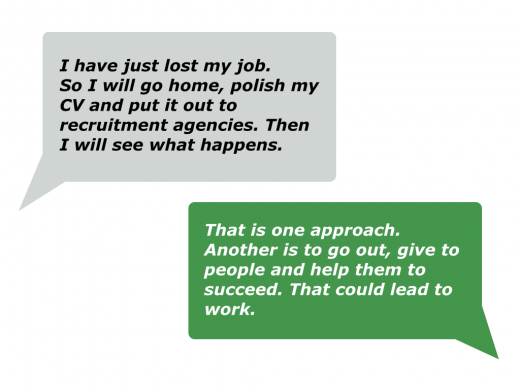
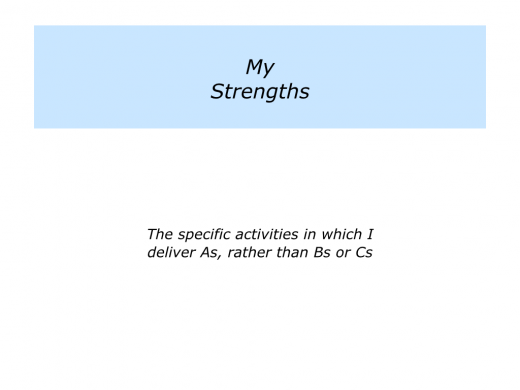
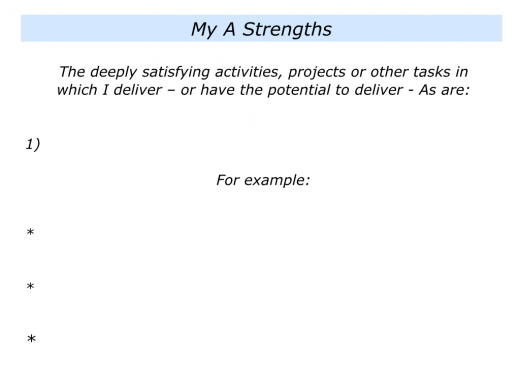


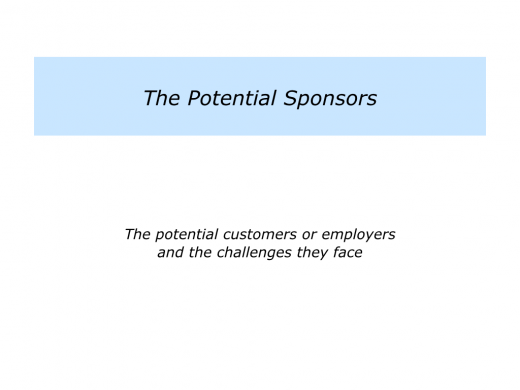
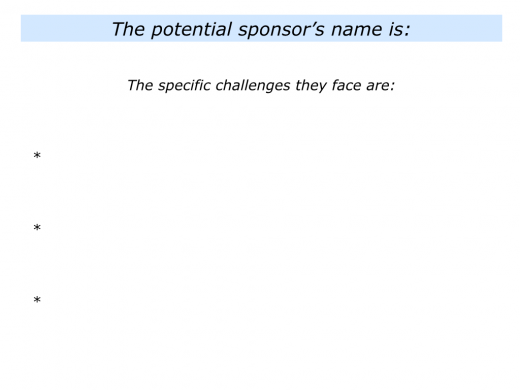
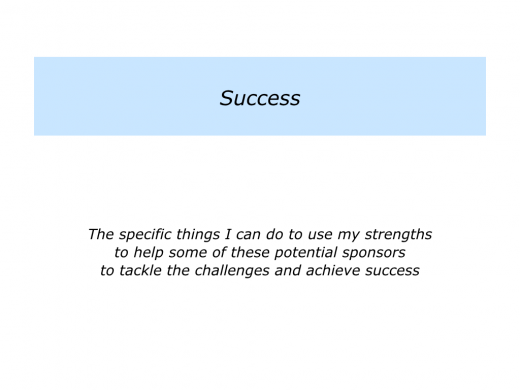
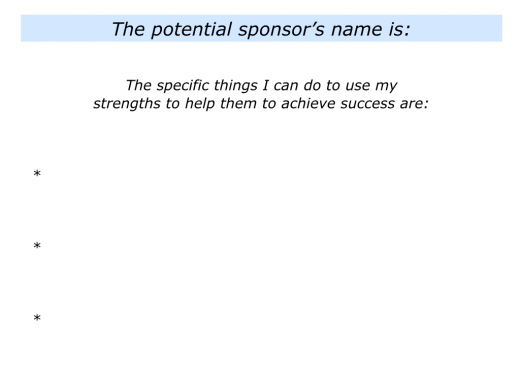
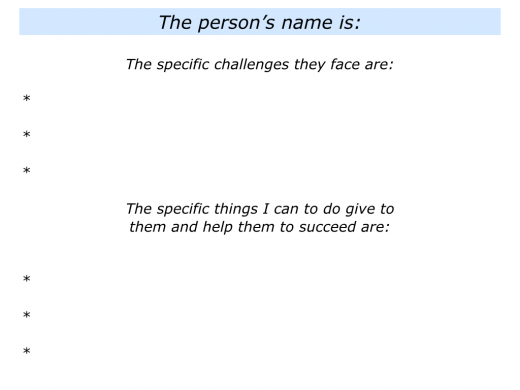
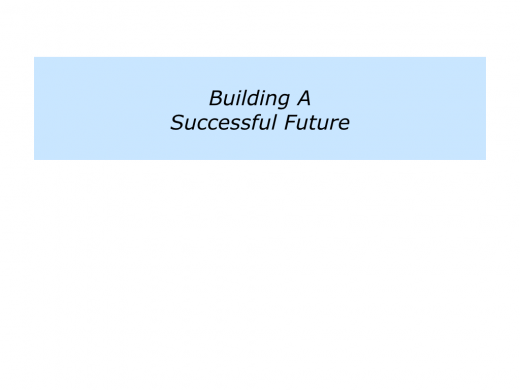
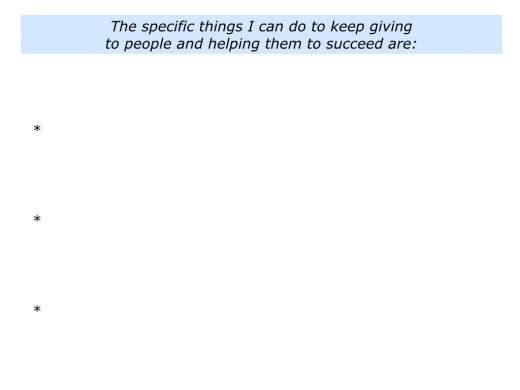




[…] Getting work by going out and helping people to succeed […]
[…] Getting work by helping others to succeed […]
[…] Satisfying Work […]
[…] Getting work by helping people to succeed […]
[…] Getting Work […]
[…] Getting Work […]